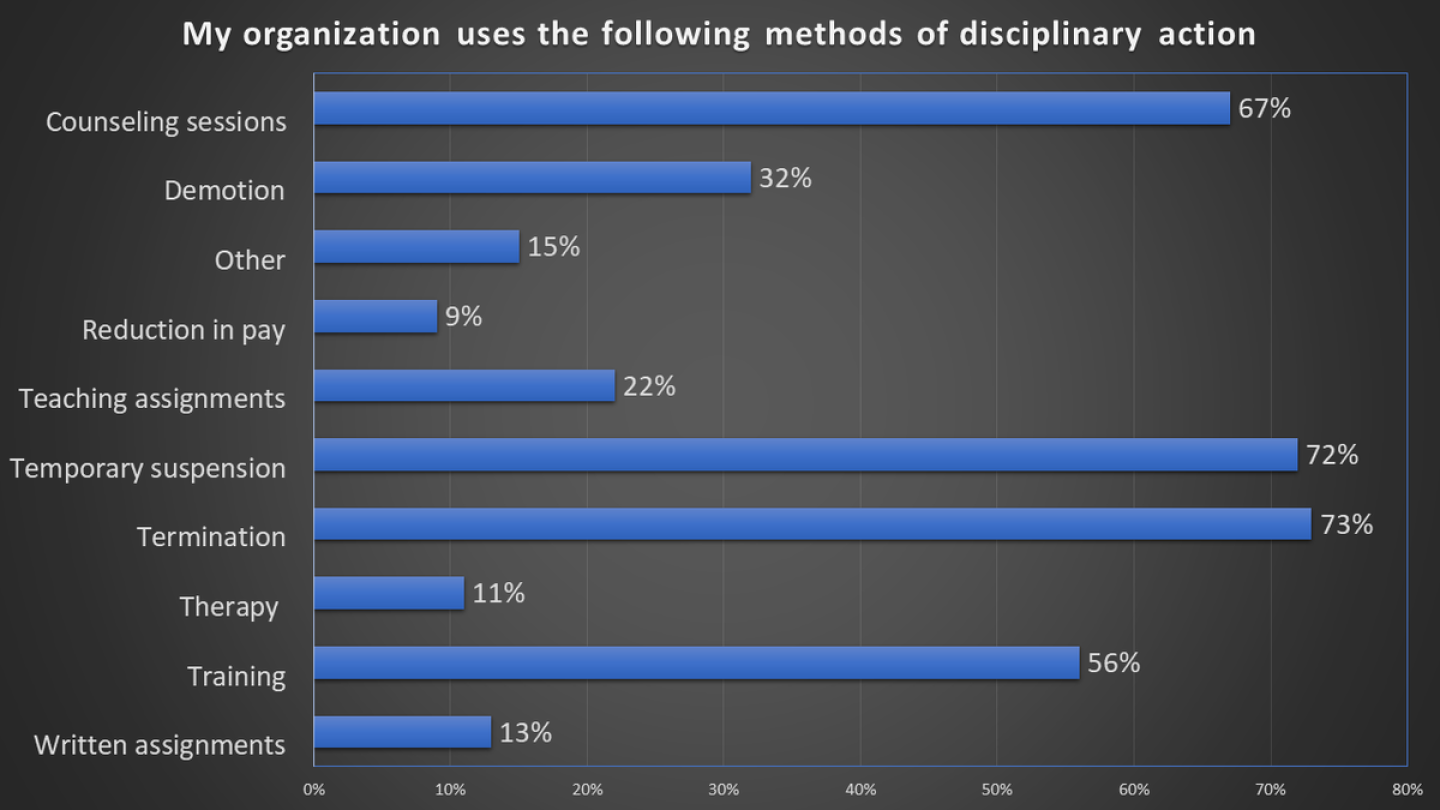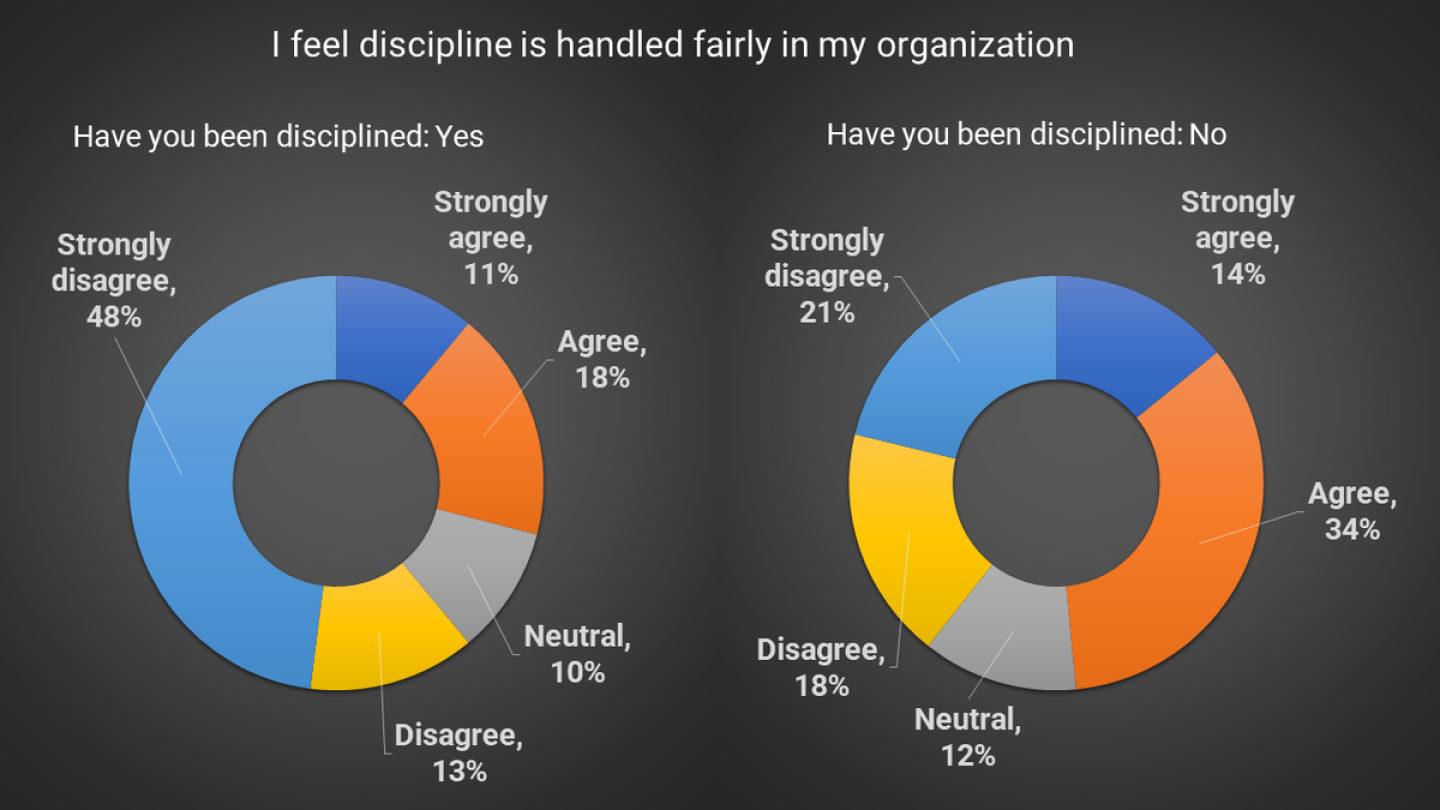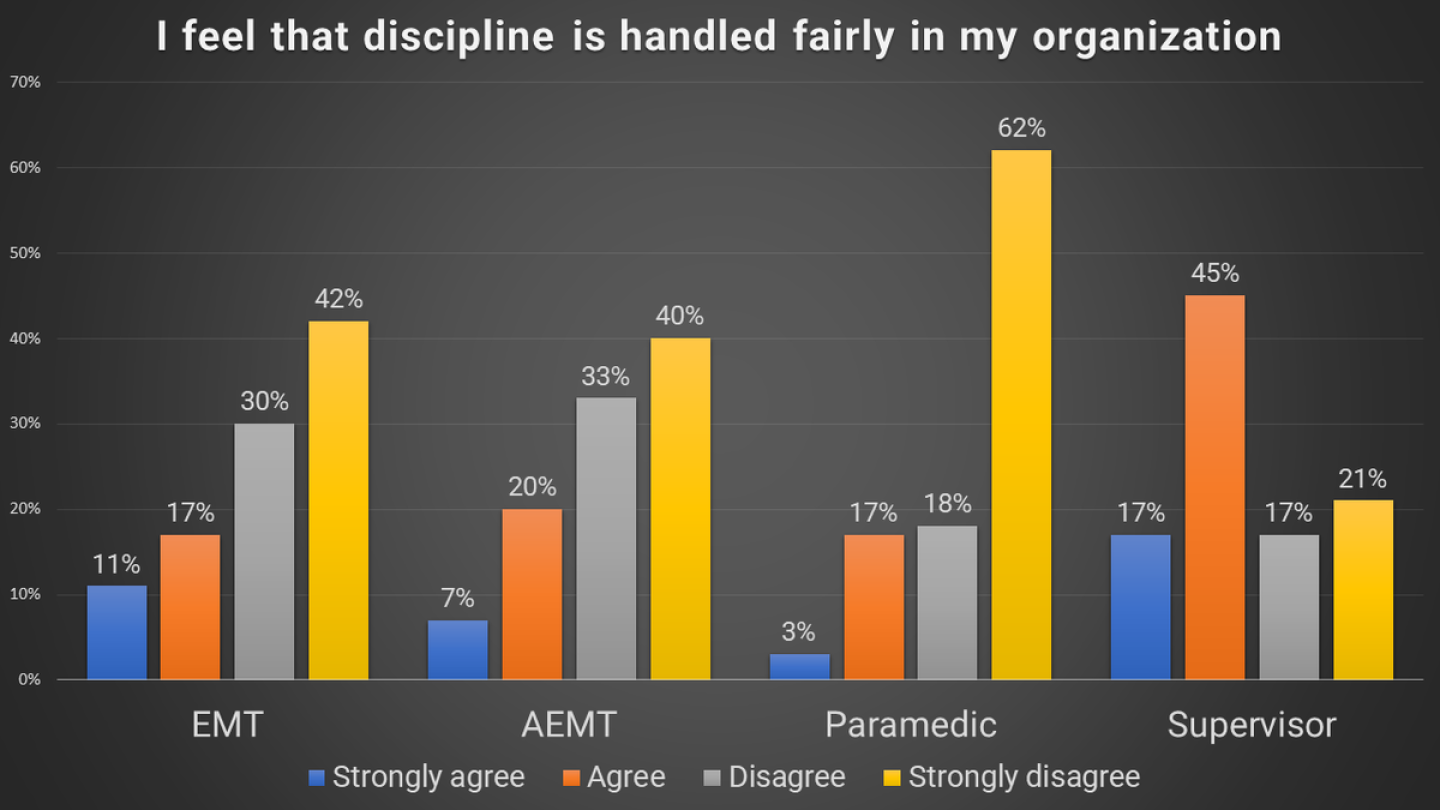When we care for our patients, we understand that they want competent clinicians who will provide care consistent with best practices, as well as fairness and equity in our interactions and how we treat them. We place a high priority on these characteristics of care, because developing trust in our communities depends on it.
Developing trust in our organizations is no different when it comes to discipline. EMS professionals want the same things that our patients want – competence, fairness, equity and to be treated like anyone else in the same situation.
Is that what actually happens? To learn more about discipline and how it is managed in EMS organizations, EMS1 conducted a survey asking EMS professionals about their thoughts regarding discipline in their organizations. [At the end of this article, download the full survey results]
The survey was answered by almost 200 people ranging in age from younger than 20 to over 60, with the majority being between the ages of 30 to 59. Of those willing to disclose gender, 68% of the respondents were male and 26% were female.
An assortment of EMTs, paramedics, supervisors, chiefs and one medical director responded to the survey. The largest group to respond was paramedics (34%). Forty-three percent of respondents were supervisors and chiefs compared to 56% clinicians.
So, what did these people have to say? We learned that driving infractions, DUI/DWI and bullying/harassment lead the issues EMS agencies administer discipline for, followed by inappropriate social media use, privacy violations and poor customer service.
Respondents identified the following areas their organizations administer discipline for:
- Driving infractions: 78%
- DUI/DWI: 76%
- Bullying, harassment: 70%
- Inappropriate social media use 70%
- Privacy violations: 69%
- Poor customer service: 66%
- Poor clinical performance: 56%
- Medication errors: 46%
Respondents reported discipline was most frequently administered for driving infractions (27%) at their agencies, followed by poor customer service (18%) and poor clinical performance (16%).
We also learned that the most common methods of discipline used in organizations included termination and temporary suspension, followed by counseling sessions and training.
When we divided the group into those who have and have not been disciplined, we learned that 48% of those who have NOT been disciplined agree or strongly agree that discipline is handled fairly compared to only 29% of those who have been disciplined. Of those who have been disciplined, 51% disagree or strongly disagree that discipline is handled fairly compared to 39% of those who have not been disciplined. This tells us that there is a disparity in the perception of how discipline is being managed.
A key question in the survey asked about familiarity with Just Culture – a culture that encourages near-miss reporting, seeking to identify areas for improvements instead of punitive culture (66% yes, 28% no, and 6% not sure). This is an important question because it leans toward assessing the key concerns related to discipline: Do my agency leaders understand discipline and how to manage it consistently, fairly and equitably? While we admit that there are many models of disciplinary management ranging from coaching to punitive-based discipline, the Just Culture model is one that has shown results within the EMS industry in recent years.
When we looked at leaders who were trained in Just Culture, we learned that 56% of respondents said that they agree or strongly agree that discipline was handled fairly when their leaders were trained in Just Culture compared to 55% who disagree that discipline is handled fairly when leaders are not trained in Just Culture. This tells us that training in discipline could have an impact in the competency, fairness and equity of managing discipline in EMS organizations.
While it is difficult to truly assess the state of disciplinary management in EMS with a small survey, this sample of respondents tell us that there may be inconsistencies in practices and that training for leaders might impact how discipline is managed and perceived. We also learned that 66% of those who responded to this survey say they are familiar with the Just Culture model.
How to improve discipline with training, example
Are there things leaders can do to improve on discipline and how it’s managed in our agencies today? Absolutely!
- Be willing to review disciplinary methods and consider improvements.
- Invest time reviewing policies and expectations to ask the questions – Is this policy necessary? Does everyone understand why it is important and what is expected?
- Provide training in coaching and providing feedback for everyone.
- Learn more about Just Culture and consider building it into your organizational culture.
- Lead by example – if you expect safe driving, do it first.
- Look for things done well, not just things done wrong. Encourage people to recognize each other when they see someone doing something right.
- Encourage everyone to report near misses and use them as opportunities for improvement.
- Learn about improvement science and how to test solutions for improvement to get great results.
Managing discipline in an organization is as important as managing patient care. These survey results tell us that members of organizations watch what leaders do when administering discipline, whether they are recipients of discipline or not. Their observations will impact their perceptions of organizational priorities, values and leadership.
One other significant finding of this survey: When asked if respondents agree that discipline is handled fairly – only 1% of chiefs said that discipline is not handled fairly while over 70% of EMTs and 80% of paramedics said that discipline is not handled fairly. This means that leaders and staff have different perceptions about discipline in their organizations. That difference will impact the health, vitality, resilience and trust of an organization and the people within it. That could be a good place for leaders to start.
Fill out the form below to download the full survey results.


















